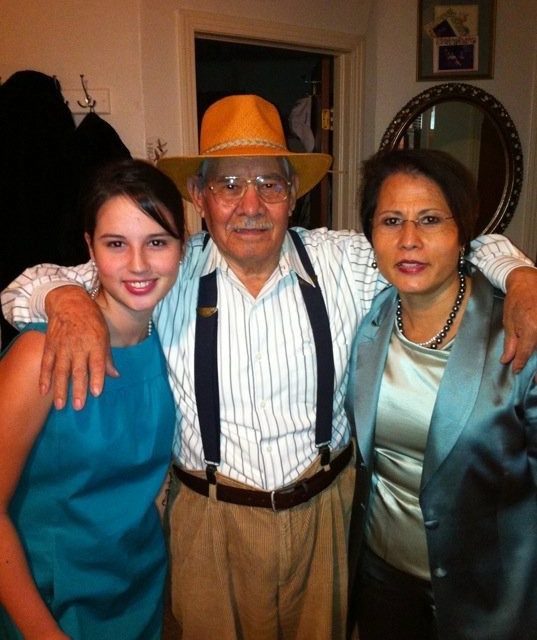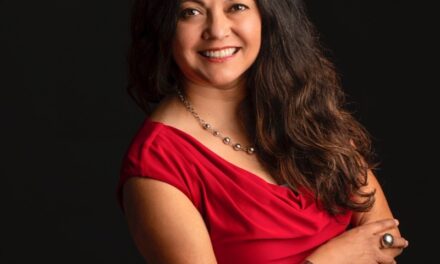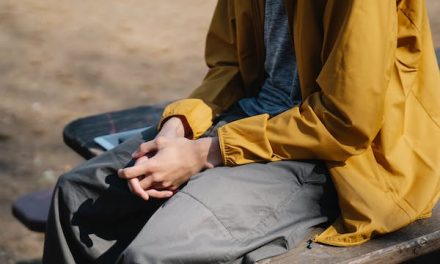
This story was produced by Ariana Remmel, during Covid-19 quarantine where the only way she could get to know her abuelito was through phone calls. Here is their story.
Lito: “Hola, Ariana?”
Ariana: Hola Lito! ¿Cómo está?”
That’s my grandpa Manuel Garcia, talking to me, Ariana Remmel. The Spanish word for grandfather is Abuelo or abuelito, so I’ve always called him Lito.
Lito is 87, and a naturalized American citizen from Mexico. He came to the states on a cattle car with more than a million other braceros workers in the 50s.
A few weeks into lockdown, I found out that he has prostate cancer that spread to his bones. There was no way for me to visit him in San Antonio where he lives, so I started calling him on the phone.
Lito: “Are you going to sing for me today? Or do you want me to sing for you?”
This is how most of our conversations start. Lito spent his life doing intense manual labor to support his wife and ten kids—my mother Margarita was number five. Mom says he was a hard man to live with. He could be mean and withholding.
He was not the kind of father who said ‘I love you’ to his kids, she tells me. I didn’t see him much when I was young.
But I remember going to his house once and seeing a picture of him dressed in his mariachi uniform. He wore a black suit with shiny silver details, a crisp white shirt and bright red cravat that still stands out in the faded photo. Lito looks so proud. He taught himself to play guitar and sing, and his mariachi band performed in the town square after church every Sunday for most of his adult life.
Sometimes he sings to me on the phone:
Lito sings: “Ay corazón que te vas para nunca volver. No me digas, adiós. No te despidas jamas, si no quieres saber de la ausencia y dolor.”
It’s a song about saying goodbye to something you love, never to return again. I don’t think he means it to be as heartbreaking as it is. It’s just his favorite song.
But I love hearing Lito sing, even though he insists that his voice is no good.
Lito: “I used to have a good voice, pero no puedo cantar ni nada”
‘I can’t sing at all anymore,’ he tells me. His voice has gotten old like he has.
My Spanish is not great. But I know enough to make it through mangled Spanglish conversations with Lito, and enough to learn a few songs myself to sing for him.
Ariana: “Do you want to sing today?”
Lito: “No you sing today. I’ll sing tomorrow maybe.”
Ariana sings: “De la sierra morena, Cielito Lindo, vienen bajando…”
In the beginning, I learned these songs to push back the guilt. Lito has been sick for a while…. I had plenty of opportunities to see him before the world shut down. But I always had excuses: He lived too far away. My Spanish wasn’t good enough. He had always been absent in my youth anyways.
Now he’s dying.
So I spend hours poring over YouTube videos of the mariachi greats like Vincent Fernando and Lucha Villa… trying to make sure that I get the pronunciations right.
And I know when I’ve done a good job, because Lito will try to sing along, despite the lag that represents the thousands of miles between us.
Ariana and Lito sing: “Ay, ay, ay, ay. Canta y no llores! Porque cantando se allegran, Cielito Lindo, los corazones.”
Lito: “Es un muy bonito canción.”
We don’t get to talk a lot. Lito’s medicines make him tired, his tumors make it hard for him to move around, and he’s never been a very social person either. But we’re building the kind of relationship that I’d missed as a kid.
Lito: “Entonces eres mi nieta, pero también eres hija de me hija”
I’m his grandchild, he tells me. But I’m also the daughter of his daughter. He says that in Mexico, that has a special meaning.
Lito: “You’re my daughter.”
I’ve tried asking Lito all the questions that grandkids are supposed to ask their grandparents. But Lito doesn’t have the energy for that, he says. He tells me to wait till he gets well.
Lito: “When I get well… you know. Pray for me, please.”
Ariana: “Of course I will, Lito.”
I’m not religious—I don’t really know how to pray. But I do sing for him. Breaking the silence of my own quarantine I sing for Lito every day, while I wash my dishes, vacuum the living room… I hum his music to myself, hoping and praying that chemo gets him through this long enough for me to see him in person. I’m just grateful to have any time with him at all.
Some days he feels better than others. Some days he shares his childhood memories, and some days we just sing.
Canta y no llores, the song goes. Sing and don’t cry.
For KSQD, I’m Ariana Remmel.
Ariana: “Ay, ay, ay, ay. Canta y no llores! Porque cantando se allegran, Cielito Lindo, los corazones.”












